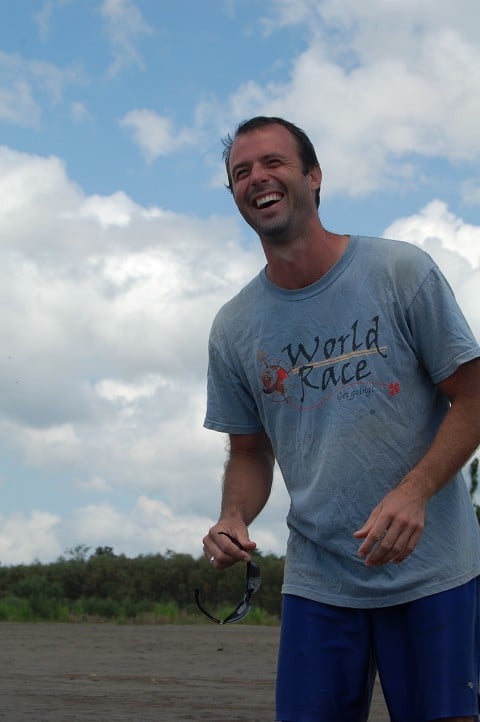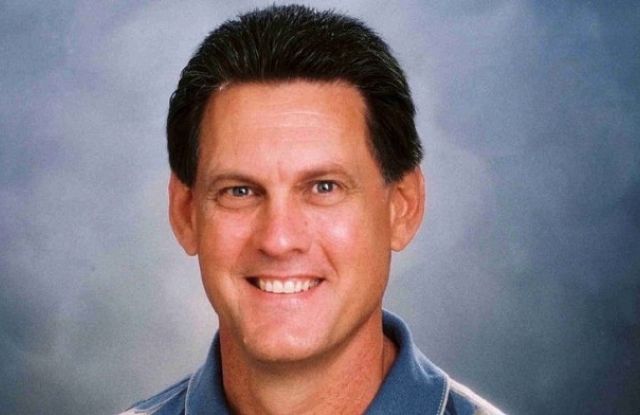Roles should shape but not define your identity

 Rusty Jackson has been on a steep learning curve. When we first talked a year ago he said, “Seth, you and your blog have wrecked my life. I prayed that God would do something radical and I lost my job. Now what do I do?”
Rusty Jackson has been on a steep learning curve. When we first talked a year ago he said, “Seth, you and your blog have wrecked my life. I prayed that God would do something radical and I lost my job. Now what do I do?”
“Well Rusty, I say, ‘Go for broke.’ Why don’t you buy a ticket to join the World Racers for their debrief in Machu Picchu in a week.”
“That’s probably an expensive ticket, but if you think I should do it, I’ll buy it.” Since that first conversation, he has been around the world with last year’s Racers and then signed up to lead this year’s team.
It’s been a blast to watch him process his experiences. I like what he recently wrote about what he’s learned about roles and identity:
As soon as we enter in to a role, whether intentionally or unintentionally, we are in danger of that role defining us. For example, growing up in my small town I gained the reputation for being a wild and crazy kid. Truth be told, I really wasn’t – in the beginning. I had only gotten in trouble a couple times, but as in any small town word got around quickly. That, coupled with the fact my own father had the same type of reputation when he was growing up, made people instantly label me. Next thing I know, I’m in this role as the “wild, party guy!”Roles create expectations. Expectations create false behavior. And once we receive approval or validation from our false behavior we find ourselves creating a false identity so when can continue to please the people around us. Because, after all, we just want to be accepted. But the problem with this false identity we created is, we are now forced to keep “putting up a front” to continue meeting the expectations that have been placed on us by our roles. And operating out of this false identity creates fear, shame and guilt. Because, deep down, we know this “false identity” is not who we really are. In fact, we are ashamed of this life we live and it makes us sick. We live in constant fear that if we are ever “found out” no one will like us.
Let me show you how this has looked in my life. So, here I am this 15-year old kid and already I had the label as a drunk, wild, party guy. Now I’m not trying to throw a pity party here. I fully accept that I did some things that would warrant such a label. I do take responsibility for my actions. However, I still had the label, or role – and it hurt. I just figured, “OK, so ya’ll expect me to be crazy, I’ll freakin’ show you crazy then!” And off I went.



This has been something I’ve been wrestling with lately, especially the expectation part. I’ve decided that the only things that I can let define who I am are the eternal things that no one can take away or give to me. Like being one of God’s kids. Or being a creative person. Those things are constant regardless of my role, but they do also help me find roles that suit me well. I feel silly to be just figuring this out, but it’s been an invaluable lesson.
Huh. First, Rusty is a talented writer… please feel free to let him know that. Second, I love that in this season when God is trying to show me who I am He is doing it by taking away all of my roles. Then He asks, “Now who are you?” I have been trying to process this since training camp and in one blog you and Rusty have helped me leaps and bounds. Thanks… and Jen, I love that you are able to share your wisdom with me through Seth’s discipleship thing. Never feel silly, you are so important to me right now. 🙂
Rusty said, “Roles create expectations. Expectations create false behavior. And once we receive approval or validation from our false behavior we find ourselves creating a false identity so when can continue to please the people around us. Because, after all, we just want to be accepted.” I connect with this well. As a kid, I tried to no avail to please my parents. My tendencies for evil was just too much to handle. I didn’t like being in the wrong, but I thoroughly enjoyed the thrills of evil. So I gave early and got my “label”. But when I got saved, I went to another extreme, a fanatic for Jesus. This was also too much for my folks to handle. Once I recall my mum shouting at me, “…why can’t you be normal like other children…you are going crazy with this Bible thing you started…” Try and imagine my confusion. I go to the left – you are wrong, to the right, that’s worse. Indeed, when we seek the honor and applause that come from men, sooner or later, we’d run into a wall.
Thanks for sharing Seth – and it’s so true. I’d just read that blog before speaking to the high school chapel I spoke for last week. God had been telling me to talk to them about how HE sees them, and how their identity is in Him, and not in the lies the world feeds them. This blog was huge confirmation that was indeed what God was leading me to share…
What happened? Well I have a blog to come on that, but teenagers were moved to tears as we rebuked the lies from ‘labels’ and ‘false identities’ and got back to the root of who they are “I no longer live but Christ lives in me” – and who God is – someone who delights in them and approves of them.
The end of it all was a sad moment though – when an administrator came up to me and informed me that next time I should tell the kids “Your decisions determine your identity”.
What happened to their IDENTITY being in CHRIST?!
How sad that people like him speak into the next generation. I praise God for men like you and Rusty speaking TRUTH and LIFE into the generations to come!
Love the comments, Jen, Valentina, Uche, and Ericka. good insights.